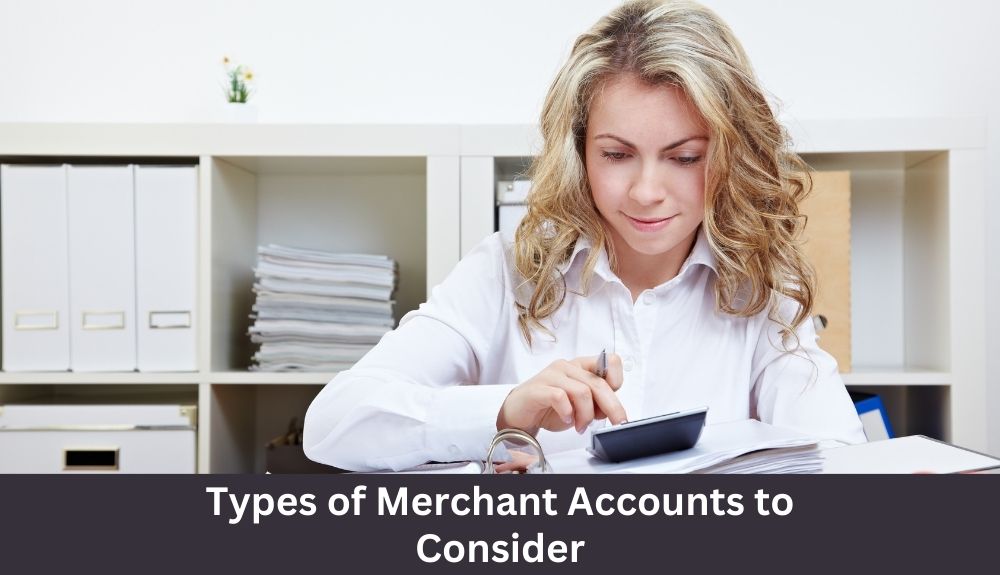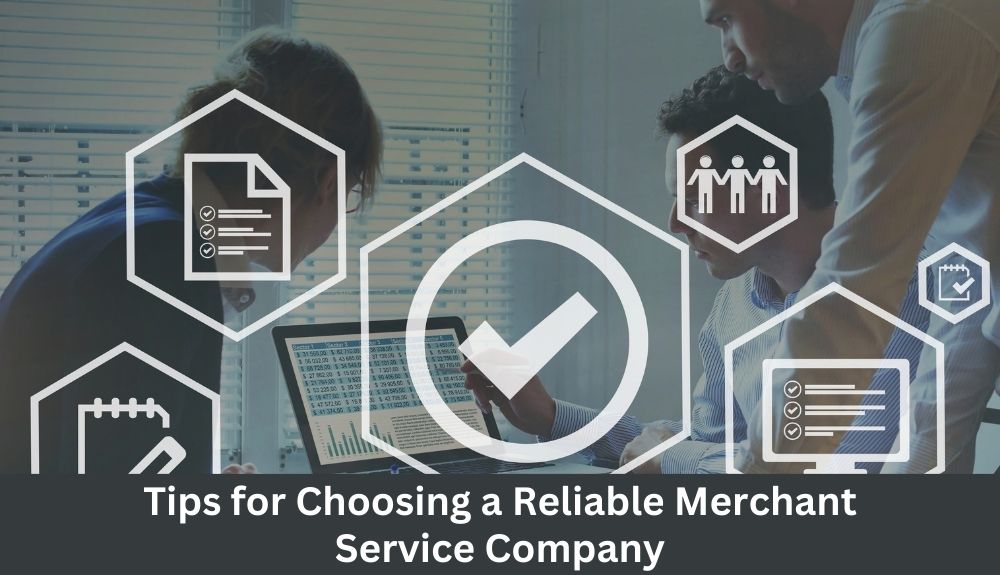Supercharge Your Online Invoicing: Expert Tips for Choosing the Best Merchant Account

Insurance Agencies, Rejoice! Find the Best Merchant Account to Simplify Payment Processing
December 18, 2023
Revolutionize Your IPTV Sales: The Best Merchant Accounts to Boost Your Revenue
December 20, 2023Are you tired of waiting weeks, or even months, to get paid for your products or services? Do you find yourself constantly following up with clients, trying to expedite the payment process? Look no further! We have the solution to your payment woes.
In this blog, we will discuss the top 5 merchant accounts for online invoicing that will help you get paid faster. Whether you’re a freelancer, small business owner, or entrepreneur, having a reliable merchant account can make a world of difference in your cash flow.
1. Understanding Merchant Accounts
A merchant account is a vital tool for any business owner, particularly those operating online or in a high-risk industry. To supercharge your online invoicing and streamline payment processing, it’s crucial to have a solid understanding of merchant accounts and how they work.
1.1 What is a Merchant Account?
A merchant account is a specialized bank account that allows businesses to accept and process credit or debit card payments from customers. It serves as an intermediary between the business and the payment processor, facilitating the secure transfer of funds. With a merchant account, you can seamlessly integrate credit card payments into your online store, enabling smooth transactions and enhancing the overall shopping experience for your customers.
1.2 Choosing the Best Fit for Your Business
When selecting a merchant account provider, you must consider several factors to ensure you find the best fit for your business. Here are some key points to evaluate:
1.2.1 Fees and Pricing Models
Review the pricing structures offered by different merchant service providers. Consider the monthly fees, transaction fees, and any additional costs associated with services like card readers or virtual terminals. Determine which pricing model aligns with your business’s transaction volume to ensure cost-effectiveness.
1.2.2 Application Process and Approval Time
The application process for a merchant account can vary across providers. Look for those that offer a streamlined and user-friendly application, with a quick approval time frame. This way, you can get your online store up and running promptly.
1.2.3 Customer Support and Service
Excellent customer support is crucial when it comes to your merchant account provider. Look for a company that offers responsive and knowledgeable customer service representatives who can assist you in case of any issues or technical difficulties.
1.2.4 Payment Options and Flexibility
Consider the variety of payment options provided by the merchant service provider. Ensure they support credit and debit card payments, as well as emerging payment methods like contactless payments or mobile apps. The more versatile the payment options, the better the experience for your customers.
1.2.5 Security and Fraud Prevention
Security is paramount when handling payment information. Look for a merchant account provider that implements robust security measures, including encryption and fraud prevention tools, to ensure the safety of your customers’ sensitive data.
1.2.6 Compatibility with Your Online Store or POS Solution
Ensure compatibility between your chosen merchant account provider and your online store platform or POS (Point of Sale) solution.
2. Importance of Choosing the Right Merchant Account
Choosing the right merchant account is crucial for the success of any business, especially when it comes to online invoicing. A reliable and efficient merchant account can supercharge your online invoicing process and ensure seamless credit card payments for your customers. Let’s dive into the importance of selecting the best merchant account and how it can benefit your small business.
1. Ensuring Smooth Payment Processing
A high-quality merchant account ensures smooth and secure payment processing. It allows you to seamlessly accept credit card payments from your customers, making the transaction process fast and convenient. With the right merchant account, you can offer a variety of payment options, including credit and debit cards, as well as contactless and mobile payments. This flexibility helps to cater to a wide range of customer preferences and enhances their overall buying experience.
2. Boosting Customer Confidence
Trust is essential when it comes to online transactions. By choosing a reputable merchant service provider, you can enhance the credibility of your business and instill confidence in your customers. A reliable merchant account guarantees secure transactions, protecting sensitive customer information and reducing the risk of fraud. This helps to build a trustworthy image for your business, fostering long-term customer relationships and encouraging repeat purchases.
3. Access to Advanced Payment Features
Selecting the best merchant account gives you access to advanced payment features that can streamline your online invoicing process. For instance, some merchant accounts offer virtual terminal capabilities, allowing you to process credit card payments directly through your computer or mobile device. Additionally, you may benefit from features such as recurring billing, allowing you to set up automatic payments for subscription-based services. These advanced features not only save time but also improve your efficiency in managing payments.
4. Cost-Effective Solutions
It’s essential to consider the cost associated with a merchant account. While some providers may charge a monthly fee, others follow a transaction-based pricing model. By comparing the pricing structures and understanding your business needs, you can choose the best merchant account that offers competitive rates and aligns with your budget. Additionally, it’s important to be aware of any additional costs, such as fees for chargebacks, refunds, or card reader equipment. Evaluating these factors will help you find the most cost-effective solution for your business.
5. Excellent Customer Support
When it comes to payment processing, having reliable customer support is vital. Whether you encounter technical difficulties or have questions about your merchant account, prompt and knowledgeable customer support can save you time and frustration.
3. Benefits of a Merchant Service Provider
A merchant service provider offers several benefits that can greatly enhance your business operations and financial transactions. Here are the key advantages of partnering with a reputable merchant service provider.
1. Streamlined Payment Processing
A reliable merchant service provider enables you to accept and process various types of payments seamlessly. Whether it’s credit cards, debit cards, mobile payments, or contactless payments, a merchant service provider offers you the infrastructure and tools to accept payments easily and securely. This streamlines your payment processing and ensures a smooth customer experience, leading to increased sales and customer satisfaction.
2. Expanded Payment Options
By integrating with a merchant service provider, you open up a world of payment options for your customers. Besides traditional card payments, you can provide additional options such as gift cards and virtual terminals. This versatility allows you to cater to a broader range of customers, meet their preferences, and boost sales. A merchant service provider that offers a wide range of payment options ensures that you can provide the best fit for your customers and their diverse payment needs.
3. Improved Cash Flow and Faster Access to Funds
With a merchant service provider, you can enjoy accelerated cash flow and quicker access to funds. Rather than waiting for checks to clear or dealing with delayed wire transfers, the provider facilitates fast and secure electronic payments. This means that funds from card transactions are typically deposited into your bank account within a couple of business days. This ensures improved cash flow and allows you to efficiently manage your business finances.
4. Enhanced Security and Fraud Protection
Keeping your customers’ payment data secure is of utmost importance. Opting for a reputable merchant service provider ensures that you have access to state-of-the-art security measures and fraud protection tools. These providers employ advanced encryption technologies, secure payment gateways, and tokenization to safeguard sensitive customer information. By adhering to industry standards, a merchant service provider helps protect you and your customers from the threats of data breaches and fraudulent activities.
5. Dedicated Customer Support
Partnering with a reliable merchant service provider means having access to dedicated customer support. In case you encounter any technical or payment-related issues, a responsive and knowledgeable support team can assist you promptly. They can guide you through setup, troubleshoot problems, and answer any questions you may have. This level of customer support ensures that your payment processing remains efficient and hassle-free.
💡 key Takeaway: Partnering with a reputable merchant service provider offers businesses streamlined payment processing, expanded payment options, improved cash flow.
4. Key Factors to Consider When Choosing a Merchant Account
When it comes to choosing a merchant account for your online business, there are several key factors that you should consider. Making the right choice can have a significant impact on your business’s success and profitability. Here are four important factors to keep in mind:
1. Pricing and Fees:
Monthly Fee: Look for a merchant account provider that offers competitive monthly fees or transaction fees that align with your budget and sales volume. Remember, higher fees might affect your bottom line.
Additional Costs: Some providers may charge additional fees for services like chargebacks, statement fees, or PCI compliance. Make sure to consider these costs when comparing different options.
Pricing Model: There are various pricing models, including flat-rate, tiered, and interchange-plus. Assess which model makes the most sense for your business needs and sales volume.
2. Customer Support:
24/7 Support: Ensure that the merchant service provider offers round-the-clock customer support. This is crucial in case you encounter any issues or have questions about your account or payment processing.
Responsiveness: Choose a provider that is known for excellent customer service and quick response times. This will help you efficiently resolve any potential problems that may arise.
3. Payment Processing Options:
Card Acceptance: Check if the merchant account provider supports all major credit and debit cards, as well as emerging payment methods like contactless payments and mobile wallets.
Online Payment Options: Make sure the provider offers seamless integration with your online store and supports secure online payment processing.
Mobile Payments: Consider whether the provider has a mobile app or offers mobile payment solutions if you plan on accepting payments on the go.
4. Reputation and Security:
Trustworthiness: Research the merchant service provider’s reputation and reliability by reading customer reviews and checking industry ratings.
Security Measures: Look for a provider that prioritizes data security, offers encryption and fraud prevention measures, and is PCI compliant. This ensures that your customers’ payment information is protected.
Remember, each business has unique needs, so take the time to assess which factors are most important for your specific situation. This will help you choose the best merchant account provider for your online store, ensuring smooth payment processing and a positive customer experience.
💡 key Takeaway: When selecting a merchant account for your online business, consider pricing and fees, customer support, payment processing options, and the provider’s reputation and security measures to ensure the best fit for your needs.
5. Types of Merchant Accounts to Consider

When it comes to choosing the best merchant account for your business, it’s important to understand the different types available to you. Each type of merchant account has its own set of features, benefits, and considerations. Here are the most common types of merchant accounts to consider:
1. Traditional Merchant Accounts:
This type of account is typically offered by banks or financial institutions.
It requires a business to have a physical presence and a traditional point-of-sale (POS) system.
Traditional merchant accounts provide in-person payment processing through card readers or terminals.
They often have lower transaction fees and greater stability.
2. E-commerce Merchant Accounts:
Designed specifically for online businesses, e-commerce merchant accounts enable you to accept credit card payments through your online store.
These accounts integrate with your website or e-commerce platform, allowing customers to make purchases online.
E-commerce merchant accounts often provide features like shopping cart integration, secure payment gateways, and fraud detection tools.
3. Mobile Payment Accounts:
Mobile payment accounts are perfect for businesses that operate on-the-go or don’t have a physical location.
They allow you to accept payments through mobile devices like smartphones or tablets.
With a mobile payment account, you can process card payments using a mobile app or a card reader that connects to your mobile device.
This type of account is ideal for businesses such as food trucks, market vendors, and service providers who work at customer locations.
4. High-Risk Merchant Accounts:
If your business operates in a high-risk industry (e.g., adult entertainment, gambling, or CBD products), you may need a high-risk merchant account.
High-risk merchant accounts cater to businesses that have a higher probability of chargebacks or fraud.
While these accounts generally have higher fees and stricter underwriting processes, they provide specialized services to businesses in riskier industries.
5. Aggregator Accounts:
Aggregator accounts, also known as payment facilitators or payment service providers (PSPs), offer a simplified setup process for businesses with low transaction volumes.
They consolidate payment processing for multiple businesses, allowing you to get started quickly and easily.
Aggregator accounts are often an attractive option for small businesses, startups, or individuals who want a hassle-free solution.
💡 key Takeaway: When choosing a merchant account, consider the specific needs and nature of your business.
6. How to Determine Your Business’s Merchant Account Needs
Every business is unique, and choosing the right merchant account is crucial for smooth payment processing. Here are key considerations to help you determine your business’s specific merchant account needs:
1. Analyze Your Business Type and Risk Level:
Identify whether your business is high-risk or low-risk. High-risk businesses, such as those in the gambling or adult industries, may require specialized merchant account providers.
Evaluate your industry and determine any unique payment processing needs or regulations specific to your vertical.
Understand the level of chargebacks or fraud risks associated with your business. Some merchant account providers specialize in high-risk business solutions, offering additional security measures.
2. Assess Your Sales Channel:
Determine the platforms you use to accept payments, such as an online store, physical point-of-sale (POS) terminals, mobile payment options, or a combination of these.
Consider whether you’ll require a virtual terminal to process mail or phone orders.
Evaluate if you need integrations with popular payment gateways or e-commerce platforms.
3. Evaluate Transaction Volume and Average Ticket Size:
Analyze your sales volume and average ticket size to ensure the merchant account you choose can handle your transaction volume without limitations or overage fees.
If you project significant growth in the future, select a provider that can accommodate your expanding business needs.
4. Consider Payment Options:
Determine the types of payments you want to accept, such as credit cards, debit cards, contactless payments, or alternative payment methods like mobile wallets or gift cards.
Check if the selected merchant account provider supports these payment options and if there are any additional costs associated with each payment method.
5. Examine Pricing Models and Fees:
Compare the pricing models offered by different merchant account providers. These can include flat-rate pricing, interchange-plus pricing, or tiered pricing models.
Pay attention to fees such as monthly fees, transaction fees, chargeback fees, and any additional costs for equipment or software.
6. Assess Customer Support and Reliability:
Look for a merchant service provider with excellent customer support that is available via multiple channels, such as phone, email, or live chat.
Investigate the provider’s reliability and uptime guarantee to ensure seamless payment processing for your business.
💡 key Takeaway: Determining your business’s specific merchant account needs involves analyzing your business type, risk level, sales channels, transaction volume.
7. Top Considerations for Selecting a Merchant Account Provider
When it comes to choosing a merchant account provider for your small business, there are several crucial factors that you should consider. Making the right choice can have a significant impact on your online invoicing process and overall payment experience. To help you navigate through the options and find the best fit for your business, here are the top considerations to keep in mind:
1. Pricing Model:
Compare the pricing models offered by different merchant account providers. Look for transparent pricing structures that align with your business needs.
Consider factors such as transaction fees, monthly fees, and any additional costs associated with the payment processing services.
2. Application Process:
Look for a merchant account provider with a streamlined and efficient application process.
Check if they offer an online application and whether they provide prompt assistance throughout the process.
Consider the ease of integrating the account with your existing online store or payment platform.
3. Customer Support:
Determine the level of customer support provided by the merchant account provider. Look for options such as live chat, phone support, and email assistance.
Consider the availability of support during your business hours and the responsiveness of their customer service team.
4. Payment Processing Options:
Evaluate the payment processing options offered by the merchant account provider.
Look for support for various payment methods, including credit cards, debit cards, contactless payments, mobile payments, and possibly gift cards.
Check if they offer a virtual terminal or mobile app for easy payment processing on-the-go.
5. Security:
Ensure that the merchant account provider follows industry-standard security measures to protect your customers’ payment information.
Look for providers that offer features such as encryption, fraud detection, and tokenization to safeguard sensitive data.
6. Experience and Reputation:
Research the experience and reputation of the merchant account provider in the industry.
Read customer reviews and testimonials to gauge their reliability and the quality of their services.
Consider their track record of serving businesses similar to yours and their overall market standing.
7. Compatibility with Business Type:
Determine if the merchant account provider specializes in serving businesses similar to yours, especially if you operate in a high-risk industry.
Check if they have experience supporting businesses in your specific niche and understand the unique requirements of your industry.
8. Evaluating Merchant Account Features and Services
When choosing the best merchant account for your business, it’s crucial to carefully evaluate the features and services offered by different providers. This section will guide you through the key considerations to ensure you make an informed decision.
1. Payment Processing Options:
Look for a merchant service provider that offers a wide range of payment processing options to cater to your customers’ preferences. These options should include credit card, debit card, mobile payment, contactless payment, and even gift card acceptance.
2. Monthly Fees and Pricing Models:
Consider the monthly fees charged by the merchant service provider. Some providers offer flat-rate pricing models, while others may charge a percentage of each transaction or a combination of both. Choose a pricing model that aligns with your business volume and needs.
3. Application Process and Approval Time:
Evaluate the application process and approval time of different merchant account providers. Look for providers that offer a streamlined application process and can provide quick approval, allowing you to start accepting payments as soon as possible.
4. Customer Support:
Reliable customer support is crucial when it comes to merchant account services. Ensure that the provider offers multiple channels of support, such as phone, email, and live chat. Look for positive reviews and testimonials regarding their responsiveness and expertise in resolving issues.
5. Additional Services and Tools:
Consider any additional services and tools offered by the merchant account provider. These may include a mobile app for managing transactions on the go, a virtual terminal for online payment processing, or even POS solutions for retail businesses. Assess which features are essential for your business operations and choose a provider that offers them.
6. Reputation and Experience:
Research the reputation and experience of each merchant account provider. Look for providers with a proven track record, positive customer reviews, and a solid reputation in the industry.
9. Comparing Merchant Account Pricing Models
When choosing a merchant account provider, understanding the various pricing models is essential to ensure that you select the best option for your business. Different pricing structures can have a significant impact on your overall costs and profitability. Let’s explore the different merchant account pricing models available and evaluate their pros and cons.
1. Flat-Rate Pricing:
Flat-rate pricing is a straightforward model where you pay a fixed percentage for each transaction, regardless of the card type or transaction volume. Companies like Square and PayPal offer this pricing structure, making it popular among small businesses and startups. This model provides simplicity and convenience, as there are no additional fees or complex calculations involved. However, it may not be the most cost-effective option for high-volume businesses or those with large-ticket transactions.
2. Tiered Pricing:
Tiered pricing involves grouping transactions into different tiers based on their risk profile. Typically, merchant service providers categorize transactions as qualified, mid-qualified, or non-qualified. Each tier has a different rate associated with it. While tiered pricing may appear attractive with its low rates for qualified transactions, it can be challenging to understand the criteria for each tier and how your transactions are classified. This lack of transparency can lead to unexpected costs and higher fees.
3. Interchange-Plus Pricing:
Interchange-plus pricing is considered to be the most transparent and fair pricing model. It involves paying the actual interchange fee set by the card networks, plus a fixed markup fee by the payment processor. This model provides detailed visibility into the underlying costs, allowing you to better understand the fees associated with each transaction. While interchange-plus pricing may appear more complex, it can be a cost-effective option, especially for businesses with high transaction volumes or those processing a mix of card types.
4. Membership/Subscription Pricing:
Membership or subscription pricing is a relatively new pricing model offered by some merchant service providers. With this model, you pay a fixed monthly fee or a subscription fee in exchange for reduced transaction rates. This can be advantageous for businesses that process a high volume of transactions as the lower rates can result in cost savings. However, it may not be suitable for low-volume businesses or those with inconsistent monthly sales.
To choose the most suitable pricing model for your merchant account, consider factors such as your transaction volume, average transaction size, risk profile, and type of business. It’s important to carefully evaluate each pricing model’s advantages and disadvantages to make an informed decision.
10. Tips for Choosing a Reliable Merchant Service Company

When it comes to choosing a reliable merchant service company for your small business, there are several key factors to consider. By selecting the best merchant service provider, you can ensure smooth credit card and debit card payment processing, efficient customer support, and a cost-effective solution that fits your business needs. Here are ten expert tips to help you make the right choice:
1. Research and Compare Pricing Models:
Compare the pricing models of different merchant service providers to ensure you choose the one that aligns with your budget and sales volume.
Look out for any additional costs such as application fees, monthly fees, or charges for using specific features like a virtual terminal or mobile app.
Consider the long-term benefits and potential savings associated with each pricing model.
2. Evaluate Customer Support:
Check the customer reviews and ratings of the merchant service companies you are considering. Look for positive feedback regarding their customer support team’s responsiveness, knowledge, and willingness to assist.
Ensure that the company provides 24/7 customer support, especially if your business operates outside traditional working hours.
3. Assess the Application Process:
Look for a merchant service provider with a straightforward and streamlined application process. Avoid companies that require excessive documentation or lengthy approval times.
Consider the convenience of applying online and how quickly you can start accepting payments once your application is approved.
4. Consider Your Business’s specific Needs:
Identify the specific features and services that are essential for your business, such as accepting contactless payments or integrating with your online store.
Make a checklist of your requirements and compare them with the offerings of different merchant service providers to find the best fit.
5. Check for Compatibility:
Ensure that the merchant service provider is compatible with your existing payment processing equipment, such as card readers or POS solutions.
If you plan to expand your business or launch new ventures, consider a provider that offers seamless integration with future technologies and payment methods.
6. Transparency and Contract Terms:
Read and understand the terms and conditions of the contract before signing up with a merchant service company.
Look for transparency in pricing, cancellation policies, and any potential penalties or hidden fees.
Avoid long-term contracts that limit your flexibility and make it challenging to switch providers if needed.
Conclusion
In conclusion, choosing the right merchant account for your online invoicing needs is crucial for the success of your business. By following the expert tips we’ve shared, you can supercharge your online invoicing process and reap the benefits of a seamless payment experience for your customers. First and foremost, consider the specific needs of your business. Are you a small start-up or an established company? Do you handle high volumes of transactions or have specific industry requirements? Understanding your unique needs will help you narrow down the merchant account options that align with your business goals.




